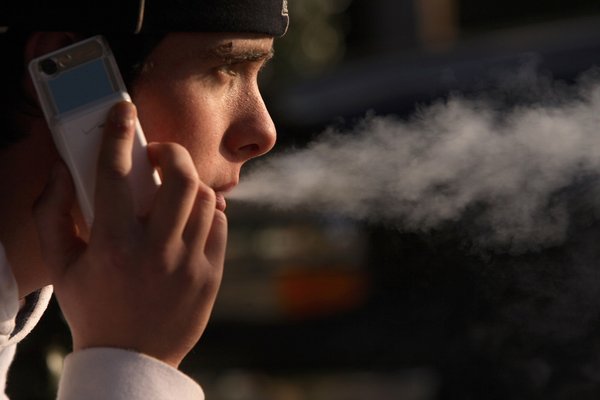Andrew Knight: Extend to parks the push to reduce smoking
Smoking should be allowed in Grand Forks parks because banning it “clamps down on personal freedom?” (“Too much cost for too little gain,” editorial, Page F1, June 1)
Is the argument really about progress vs. freedom?
The Herald’s “ThreeSixty” opinion section on June 1 includes the phrases “enjoy a cigarette on a park bench,” “cigarette smoke smells like roses,” and that a “(smoking) ban is ‘pointless’ from a traditional perspective.” It felt more like an opinion section from the 1960s.
Grand Forks Park District Commissioner Molly Soeby expertly lays out the issues with several pieces of evidence for this ban, and then non-local public policy wonks (Dennis Prager et al.) are trotted out as the counterpoint, with nary a point made specific to smoking in parks.
Soeby explains 78 percent of the Grand Forks community and 82 percent of golfers and softball managers are for a comprehensive tobacco-free policy. Even with sampling error, we can discern a clear majority opinion here.
How then, does Grand Forks City Council President Hal Gershman think the ban would be “very unpopular?” (“Banning smoking in parks a ‘needless intrusion,’” letter, Page A4, June 4).
This isn’t to say that I don’t expect a small but vocal backlash from the “hey, freedom!” crowd.
The supposed “counter” to Soeby’s arguments and statistics is a smattering of excerpts on the topic of smoking, starting with Simon Chapman from Australia (yes, Australia). Chapman compares car exhaust to secondhand smoke because we breathe in benzene from both sources. There are a LOT of car owners and not nearly as many smokers. How much benzene shoots out of exhausts in cars versus a single cigarette?
This argument fails because he’s using two different scales.
Chapman finishes the tortured analogy saying “we hear no serious calls for the banning of cars.” First, no one is calling for banning cigarettes; it’s about reducing smoking.
Second, there is substantial market pressure on car companies to reduce emissions. Science told us vehicle emissions are pretty bad, so we are trying hard to reduce them. Science also told us smoking is bad, so that’s why the push to reduce places where smoking is allowed needs to continue to parks and other public places.
The slippery slope fallacy continued with an excerpt from a New York Times editorial (from three years ago) to that city’s smoking ban, comparing it outright to alcohol prohibition 90 years ago. If we ban smoking in parks, it may lead to “a civic disaster,” according to the writer.
If this is the best group of arguments to keep smoking legal in parks, maybe it means there are few, if any, locals willing to write against the ban (in which case, kudos to Gershman and the Herald’s editorial board for being lone wolves on this minority opinion).
You have freedom to smoke on your property, in your car, while you walk around town and so on. You have freedom to do a LOT of things in your own home that you cannot do in a park because many of us believe it is better not to expose nature, playgrounds and children to it.
Add smoking to the list. We don’t want children to see adults smoking, feel cigarette butts in their toes or smell the cigarette smoke. Leave the cigarettes in the car for a round of golf or a volleyball match.
Soon my family is moving to Colorado — a state with acres ravaged by fires in recent years. Herald readers can probably understand that the residents there are skittish about smoking in places such as parks and playgrounds, and therefore have enacted smoking bans.
Like people in Grand Forks, they have natural beauty worth preserving, would prefer not seeing people “enjoying a cigarette on a park bench” and don’t want to take the chance that an errant cigarette butt could take down a forest range.
We’re packing up for the move and are already missing people we’ve befriended here, but we won’t miss the overly cautious, conservative approach to environmental protections.
This is not a simple false choice of progress or freedom. The Park Board should feel very confident moving forward in enacting this policy.
And to the Herald editorial board: Yes, the benefits are more than worth the costs.
Knight is an assistant professor in the music department at UND.
http://www.grandforksherald.com/content/andrew-knight-extend-parks-push-reduce-smoking




